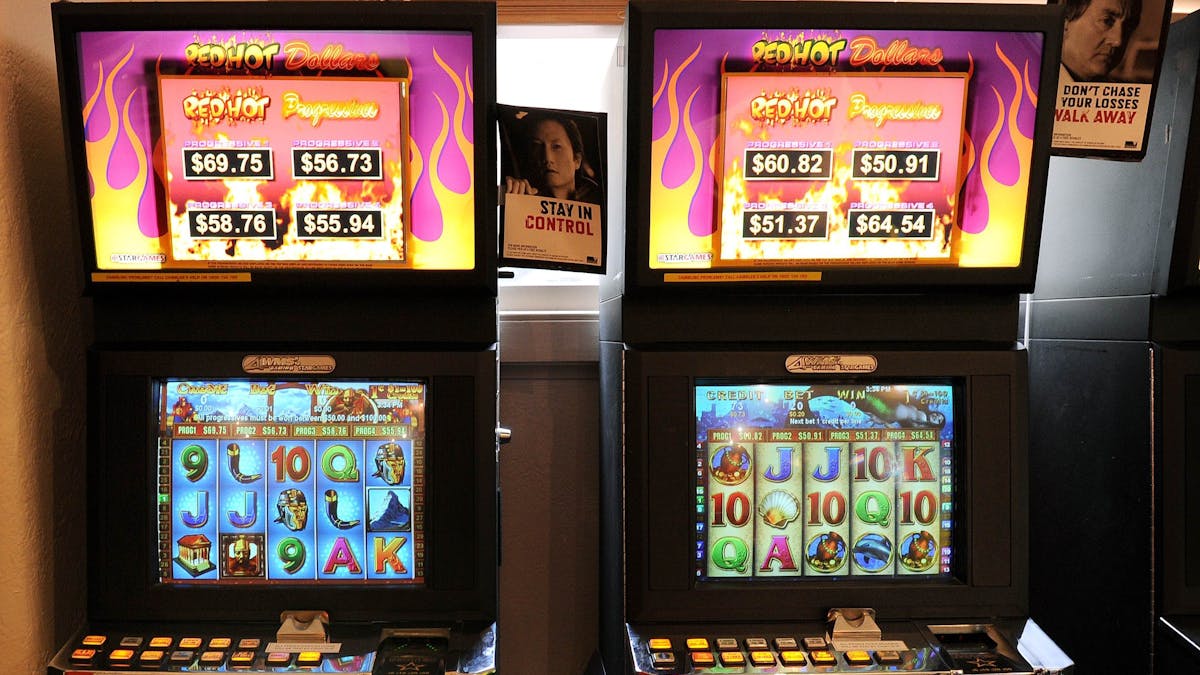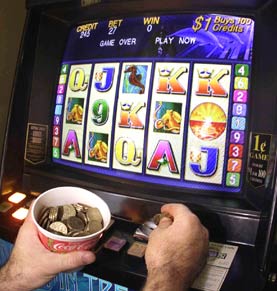Mandatory Pre-commitment On Poker Machines
The next level of pre-commitment would link machines in the one venue, so you couldn’t overspend or play over time in the one venue. Full or mandatory pre-commitment for pokies means you need to register prior to playing pokies and you would have to stop when you reach your limit of money or time. Voluntary pre-commitment means. Pursuant to the Tier 3 Resurgence Mitigation Plan announced by Governor Pritzker on November 17, 2020, all licensed Illinois casino gambling and video gaming operations of all kind are suspended until further notice effective at the conclusion of the gaming day at 11:01pm on Thursday, November 19, 2020.
10 May 2011
Andrew presents the Joint Select Committee on Gambling Reform’s report, The design and implementation of a mandatory pre-commitment system for electronic gaming machines.
Mr WILKIE (Denison) (16:54): On behalf of the Joint Select Committee on Gambling Reform, I present the committee’s report, entitled The design and implementation of a mandatory pre-commitment system for electronic gaming machines, which incorporates a dissenting report, together with the transcript of evidence, submissions and tabled documents.
Ordered that the report be made a parliamentary paper.

Mr WILKIE: by leave—I present the first report of the Joint Select Committee on Gambling Reform entitled The design and implementation of a mandatory precommitment system for electronic gaming machines. There are 95,000 Australians addicted to poker machines and another 95,000 at risk. For every problem gambler, between five and 10 people are adversely impacted. Poker machine losses amount to some $12 billion a year, 40 per cent of which is from problem gamblers. Individual losses average $1,200 an hour on current high intensity electronic gaming machines. Even if the industry estimate of $3 billion for the cost of implementing precommitment is proven correct, this still represents little more than half what problem gamblers lose in a single year.


The implementation of a mandatory precommitment system on electronic gaming machines—or poker machines—was a major recommendation of the Productivity Commission and is a key aspect of my own limited support for the government. Mandatory precommitment—requiring players to preset limits before they start to gamble—will reduce the harm of poker machines and encourage all players to make rational and conscious decisions about their gambling behaviour. It will result in fewer people becoming problem gamblers in Australia.
This report makes 43 recommendations, most significantly the fitting of mandatory precommitment on all high-intensity poker machines by 2014. Players will need to pre-set their loss limit and will be locked out when that limit is reached. There will be cooling-off periods for limit increases, safeguards to prevent venue or machine hopping and an effective self-exclusion function. There will be no licence to punt and no fingerprinting. Venues will have the choice to change some or all of their poker machines for low-intensity machines having a $1 maximum bet and other loss-limiting features. The 88 per cent of poker machine players who currently wager a dollar or less will barely notice the change except that they will almost always finish their gambling session with more money in their pockets.
The report also recommends that smaller venues—those with 15 machines or less—be given until 2018 to implement the scheme and the establishment of a transition fund to assist them. Foreign tourists in casinos will have the option of being given a 24-hour card to override pre-commitment. And a new independent national body will be established to oversee implementation.

The committee received 119 submissions and heard from a wide range of witnesses from industry, from social service and church organisations, from academia, from experts and, most importantly, from a number of former problem gamblers who bravely chose to share their stories with us and offer their insights. I sincerely thank all these witnesses, as well as the members of the committee and the secretariat staff, for their contributions and efforts.
During the course of the inquiry, it became clear to me from various articles and public comments that unfortunately coalition committee members had already decided their position and that this would be one of dissent. This is disappointing given that they were, like other members of the committee, so strongly affected by the stories of those brave problem gamblers to whom the committee spoke. So too the poker machine industry has been a strident critic of these poker machine reforms. But the industry’s multi-million dollar advertising campaign against the reforms—a fear campaign—not to mention intense political lobbying and a smear campaign against me personally, shows how desperate some in the industry are to overturn this historic opportunity for federal intervention in problem gambling.
Yes, we did hear many in the industry express their concern for problem gamblers and I believe that many of these concerns are genuine. But I ask of the others in the poker machine industry why they continue to criticise the Productivity Commission’s work and its considered estimates of problem gambling, continue to misrepresent the evidence of precommitment trials, continue to exaggerate the costs, continue to complain about unachievable timelines, continue to overstate community contributions and continue to blame problem gamblers for an addiction caused by a fundamentally unsafe product. The number of Australians touched by or at risk of poker machine problem gambling in one form or another can be measured in the millions. No wonder our children will judge the members and senators of the 43rd Parliament on our willingness and success in seizing this historic moment and doing something about it, as they should. I commend the report to the House.
Mr WILKIE (Denison) (17:05): I move:
That the House take note of the report.
The DEPUTY SPEAKER: In accordance with standing order 39(c), the debate is adjourned. The resumption of the debate will be made an order of the day for the next sitting.
Mr WILKIE (Denison) (17:05): by leave—I move:
That the order of the day be referred to the Main Committee for debate.
Question agreed to.
Some video poker games aren’t really video poker games—they’re actually slot machines that LOOK LIKE VP machines. If you’re playing in a private club or some kind of underground casino, this canoften be the case. Be cautious if that’s the case.
But fake video poker games aren’t only found in illegal underground gambling halls. You can also find them in legal, regulated casinos throughout the United States. Often you’ll see them atNative American casinos.
There are 2 types of gambling machines:
- Class II
- Class III
The Class III machines are strictly regulated and have detailed restrictions on the kinds of random number generators they can use and what kind of odds they can offer. These are the kinds ofgames you’ll see in cities like Las Vegas in states like Nevada.
Mandatory Pre-commitment On Poker Machines Machine
Class II machines, though, vary from state to state. Sometimes these games are legally required to simulate a bingo or lottery game. If you’re playing in a casino in a state that only allowsthese kinds of games, the video poker games are random, sure—they just don’t offer the same kinds of odds you’d expect from a deck of cards.
Mandatory Pre-commitment On Poker Machines For Sale
In that case, you have no way of knowing what the payback percentage on such a game is. In fact, you can’t expect the odds in this game to be at all better than the odds in any slot machine insuch a casino.